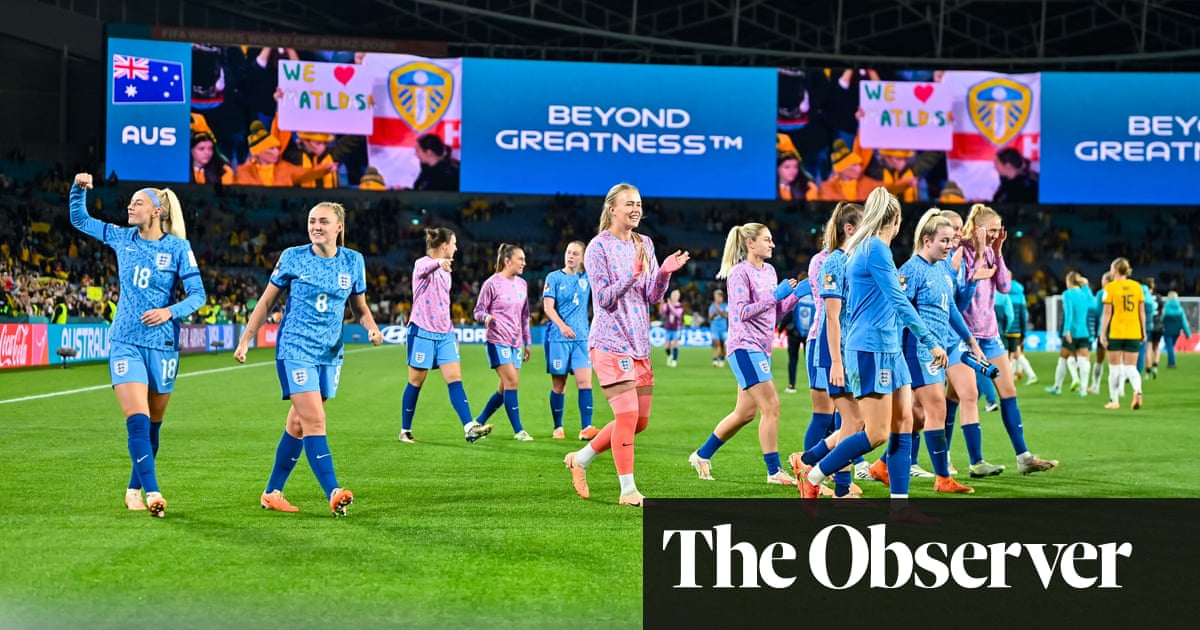
t is a measure of football’s remarkable cultural weight that the plot to create a breakaway European Super League (ESL) has dominated the media since it was announced late on Sunday night – and provoked a furious response not simply from every corner of the football world, but from 10 Downing Street and the Élysée Palace.
The ESL would be a midweek competition among a closed and self-selecting circle of top clubs – essentially a replacement for the existing Uefa Champions League. The 12 founder members include six from England and three each from Spain and Italy, who claim they will continue to participate in their domestic leagues. They expect the new league to command enormous digital revenues, which will remain theirs alone, without the inconvenience of sharing Champions League broadcast money with the rest of European football, or subjecting themselves to Uefa regulations. The absence of promotion and relegation from this charmed circle, combined with these income streams, is designed to ensure that their privileged position will be secure in perpetuity.
It barely needs reiterating why this is such an appalling idea: the already corrosive imbalance in most European domestic leagues will be made even greater by this hoarding of the spoils. The sight of any ruling elite making inequality ineradicable is contemptible, but set against football’s core mythology – of level playing fields and sporting chances – it is an act of cultural desecration. No less so, is its careless destruction of 65 years of European football as a grand, inclusive, continent-wide narrative and shared ritual experience.
Even so, and despite the huge wave of opposition emerging from government ministries, the European Union, football associations and leagues, fans and their organisations, this kind of football politics is not going away. What changes in European football have brought us to this pass?
The ESL has its roots in plans first floated by Silvio Berlusconi, then owner of AC Milan, in the 1990s. They have resurfaced from time to time – then, as now, deployed by the biggest clubs as a threat to Uefa, ensuring that European competitions deliver an ever greater share of the money into their pockets. But this time, the clubs seem to have actually gone over the top.
This scandalous announcement may be the product of a sort of prisoner’s dilemma, in which multiple actors who don’t trust one another end up making a bad collective decision for fear of being left out. Some of these big clubs, such as Barcelona, with a debt of around €1bn, are especially desperate for funds. But there are deeper trends at work here that reflect the pathologies of contemporary capitalism as much as elite football.
First, European football, like everything else, has become much more unequal, with revenue concentrated in a decreasing number of nations, leagues and clubs, while many systems of redistribution have been removed or reduced. One consequence of this inequality is that a handful of top clubs dominate their domestic leagues, and they now feel that only an elite European league will suit them. Like many of the world’s ultra-rich, they cannot accept that the way to solve the problems created by extreme inequality is simply to reduce inequality, rather than seal yourself in a protected bubble with your plutocratic peers.
Second, the last decade has seen a sharp increase in the role of investment banks, venture capital and hedge funds in football – as investors and club owners. JP Morgan are the bankers to the ESL; AC Milan are owned by a US hedge fund, while Fenway Sports Group, the owner of Liverpool, is cut from the same cloth. For these investors, and the billionaires that own Juventus, Spurs and Manchester United, there is a relentless determination to increase profitability and eliminate risk: as a board member of one of the breakaway Premier League clubs told Sky Sports, the owners believe their “primary job is to maximise our revenues and profits. The wider good of the game is a secondary concern.” But all of these owners are already fantastically rich; if profit was their aim, there would be less destructive ways to achieve it. They pose as the custodians of their historic clubs, but they are in fact mere rentiers and wreckers.
Third, there has been a considerable politicisation of club ownership. Berlusconi turned his ownership of AC Milan into a political movement that helped him dominate Italian politics for decades. Roman Abramovich has used Chelsea to extricate himself and his fortune from the deadly politics of Putin’s Russia. Manchester City and PSG – who have so far declined to join the ESL – are the symbolic linchpins of the foreign policy of the UAE and Qatar. The Gulf states do not need football’s money, but they have other goals that are better served by an absence of public regulation, whether from national football associations or Uefa.
While these changes help explain the motivations among these clubs, the decision to actually act upon them is a reflection of two further shifts, both rendered more clear by the impact of the pandemic. For some time, European football audiences and revenues have been tilting from the local to the global, while the character of matchday has hovered between the real and the digital. The emptying of stadiums and the miraculous resilience of audience interest has, in the eyes of the ESL clubs, shifted the balance decisively toward the global and digital. In the amoral calculus of the banker and the oligarch, there is no longer a need to prioritise fans in stadiums, or the deep local and national stories that have brought them there: capital is confident that a global digital product will earn more than it loses.
Nothing is inevitable, and the opponents to these plans have some serious options. Fifa and Uefa can ban these clubs and their players from international competitions; football associations could force them out of their domestic leagues; fans could organise, protest and refuse to attend. But all of us have, hitherto, failed to deliver on these kind of threats.
We have already allowed this coterie of billionaires to own and deform the game for some time. This particular circus may yet fold, but the economic and political shifts that made it possible will still be with us. Now we need to do more than call their bluff and settle for the compromise of an expanded Champions League. We must rewrite the rules, remake the institutions and reassess our role as fans – for we all, collectively, allowed them to contemplate this gambit, and to believe they could get away with it.
David Goldblatt is the author of The Ball is Round: A Global History of Football and The Game of Our Lives












